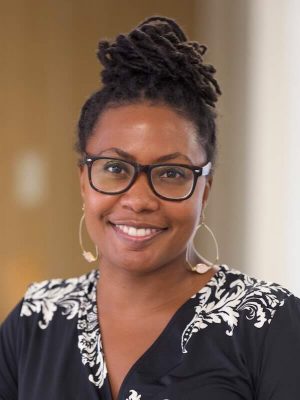The spring 2025 edition of the Syracuse University School of Eduction’s Ganders Lecture series welcomes community-engaged scholar Keisha Green to discuss “Working Towards Racial Justice and Educational Equity Through Youth Engaged, Justice-Oriented Literacy and Learning.” The lecture takes place on March 6, 2025,, from 4:30 to 6:30 p.m. in Bird Library’s Peter Graham Scholarly Commons (Room 114) on the Syracuse University campus.

In her talk Green will revisit one of bell hook’s influential texts—Teaching to Transgress: Education as the Practice of Freedom—as a way to (re)connect and (re)commit to a justice-oriented, community-based, and youth-engaged liberatory project of teaching and learning in the context of today’s political climate and culture wars. In doing so, Green will explore pathways and possibilities for literacy-rich and multi-modal liberal arts-based education.
Green is Associate Professor of Teacher Education and Curriculum Studies at the University of Massachusetts-Amherst. Her research interests include English Education, youth literacy practices, critical literacy, and critical pedagogy, and she is published in the International Journal for Qualitative Studies; Equity and Excellence in Education; Race, Ethnicity, and Education; and Educational Forum. She also has authored chapters in edited volumes, including in Humanizing Research: Decolonizing Qualitative Inquiry with Youth and Communities and Youth Voices, Public Spaces, and Civic Engagement.
The lecture is presented by SOE’s Harry S. and Elva K. Ganders Memorial Fund Lecture Series, which remembers Harry S. Ganders, the School of Education’s fourth Dean (who oversaw the transformation of the Teachers College into the “All University” School of Education) and his wife. The lecture was established by the Ganders’ daughters and is also supported by alumni and other contributions to the Harry S. and Elva K. Ganders Memorial Fund.
A Syracuse Symposium 2024-2025 event, the lecture’s co-sponsors are the Department of Writing Studies, Rhetoric, and Composition, Engaged Humanities Network, and Syracuse University Humanities Center.
